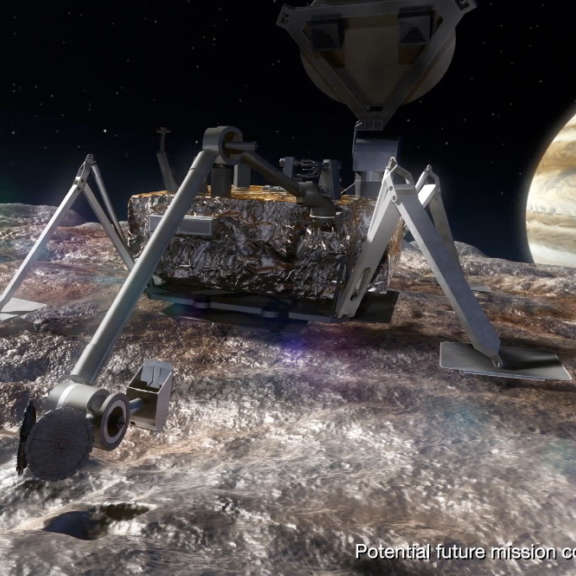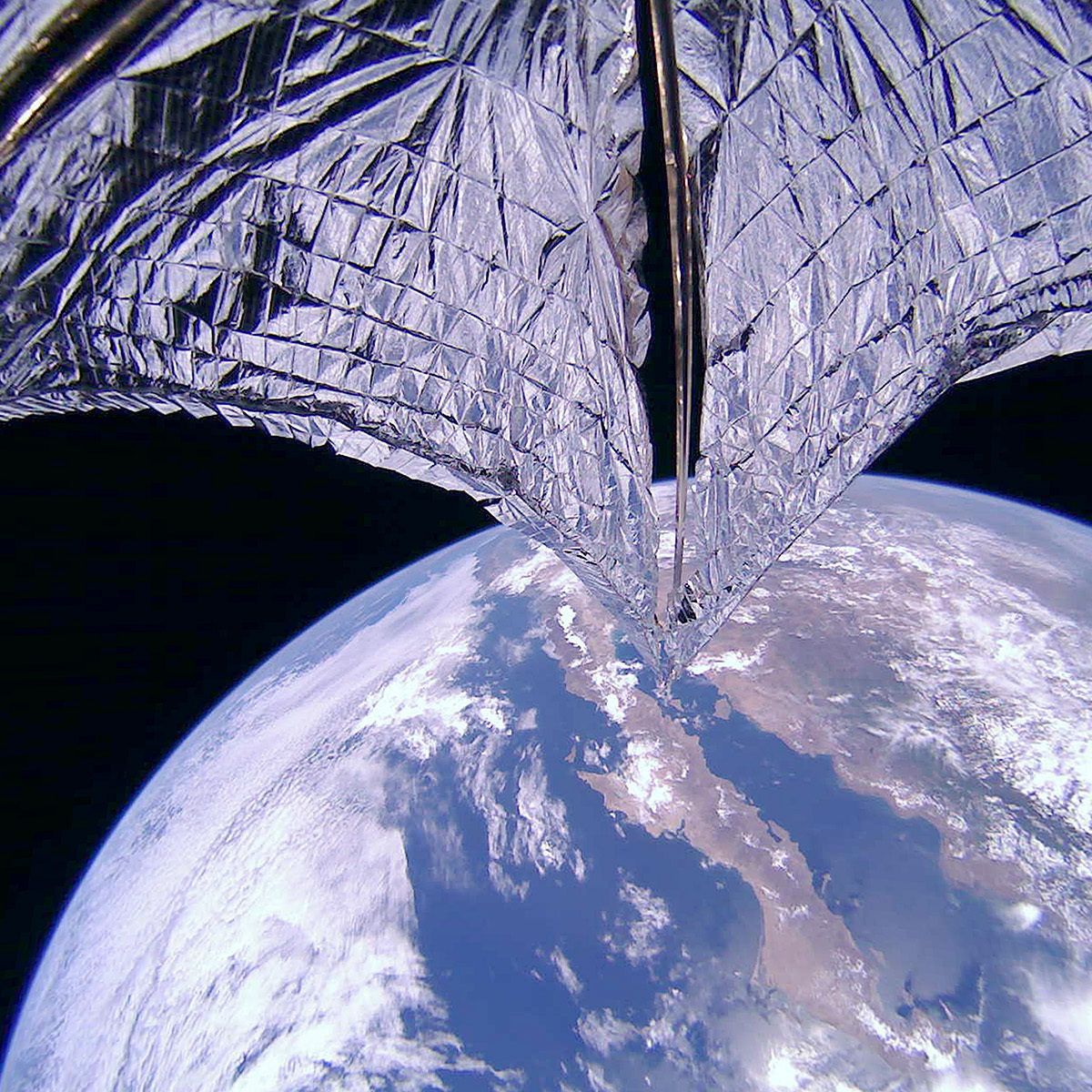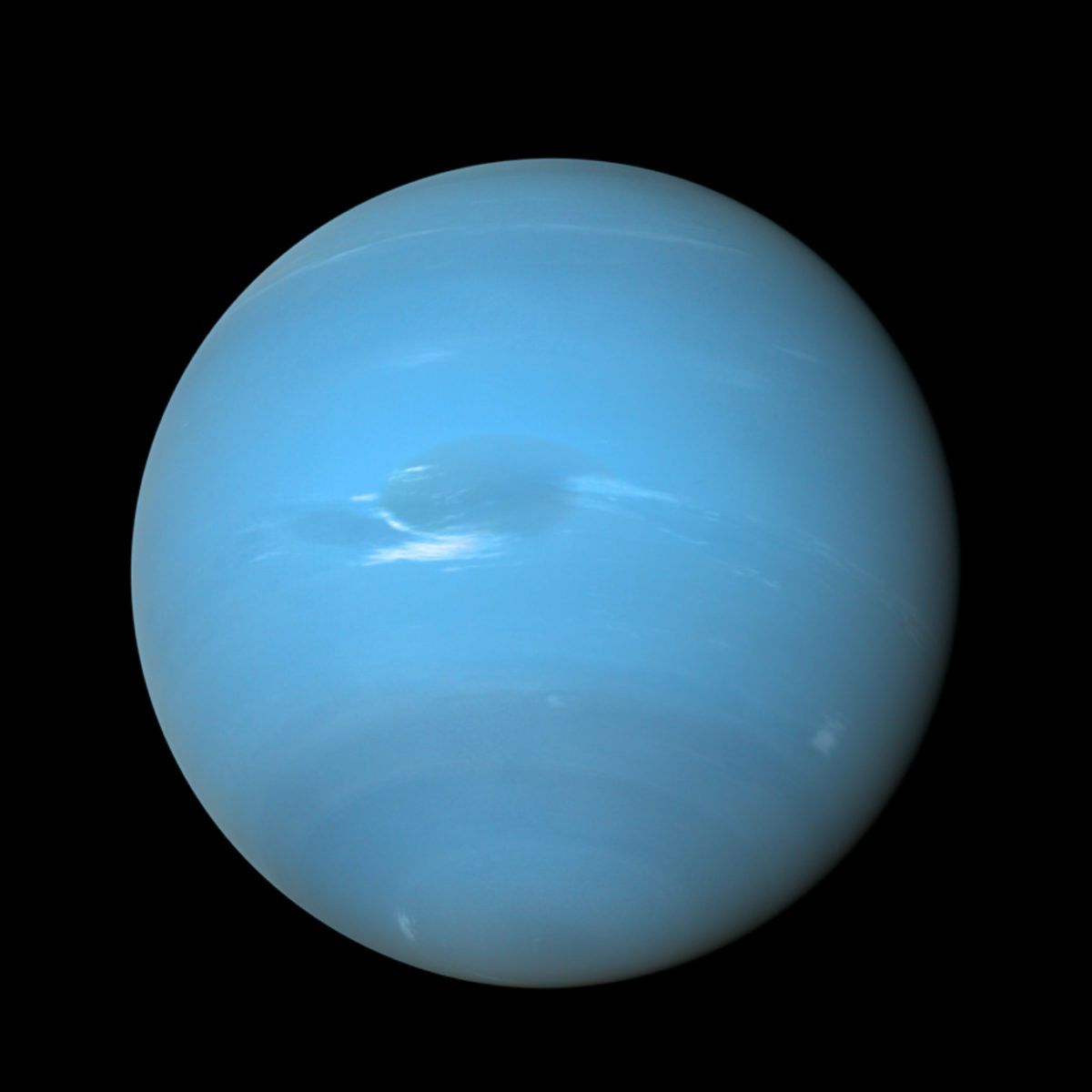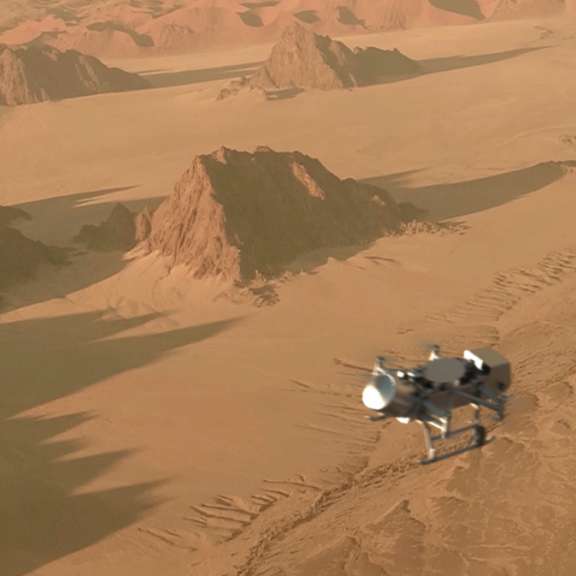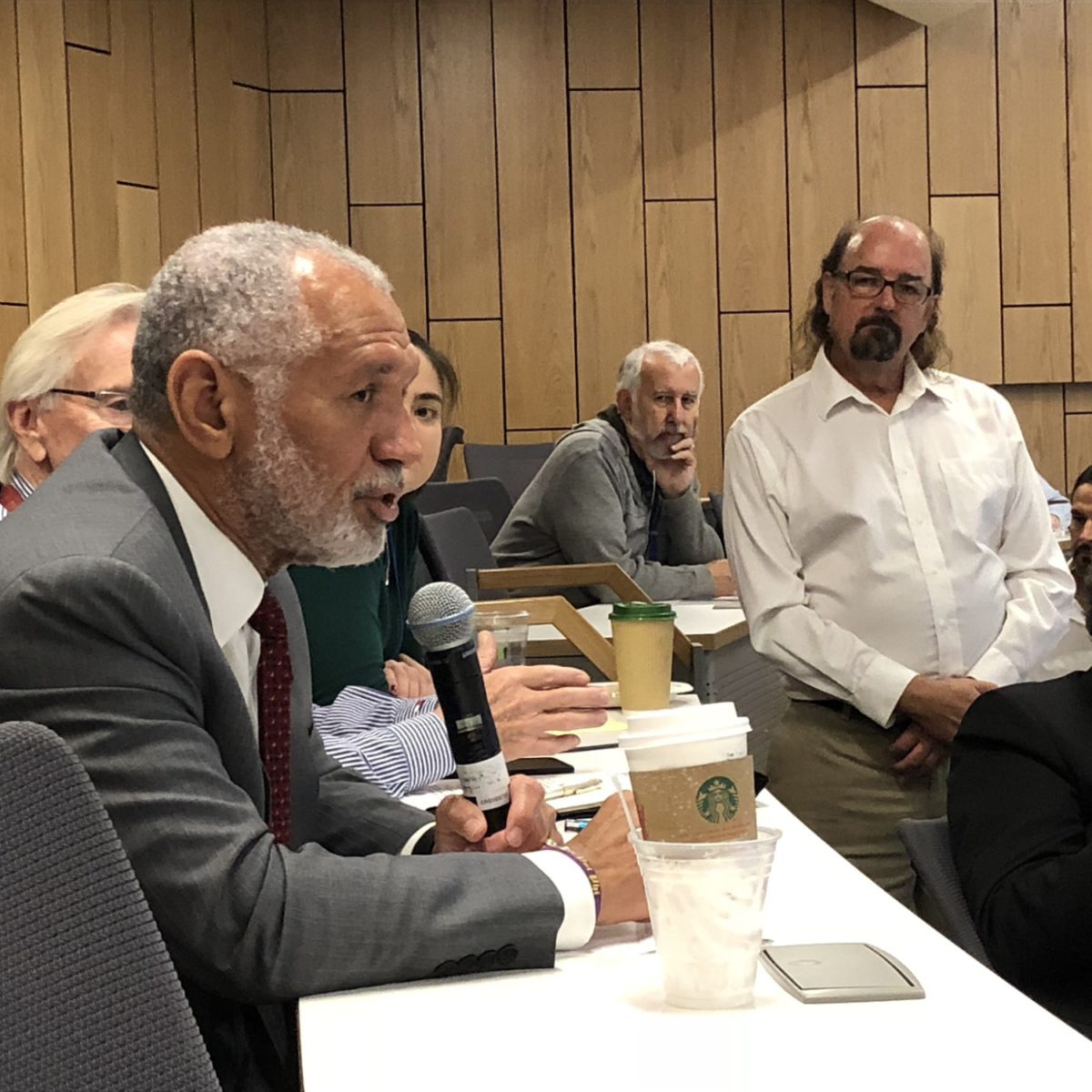Since 2002, Planetary Radio has visited with a scientist, engineer, project manager, advocate, or writer who provides a unique perspective on the quest for knowledge about our Solar System and beyond. The full show archive is available for free.
Search Planetary Radio
Laurie Leshin has just become the tenth director of JPL and the first woman to run the fabled center for space science and robotic exploration.
Britain’s Astronomer Royal Martin Rees and science writer Don Goldsmith question the value of putting astronauts in harm’s way at great expense in their new book.
After a special message we present highlights of the successful arrival at the International Space Station of the Crew Dragon spacecraft, followed by a visit to chilly Mars with planetary scientist Edgard Rivera-Valentin.
JPL scientist Kevin Hand is endlessly fascinated by the possibility of life in the hidden oceans of the outer solar system’s moons, and now he has written a great book about the quest to discover it.
It will be the first flying machine on another world. Mars Helicopter Project Manager MiMi Aung shares her plans. There’s big news about The Planetary Society’s LightSail 2!
NASA has given the go-ahead for Dragonfly, a flying rotorcraft that will explore Saturn’s mysterious moon Titan. Mission Principal Investigator Elizabeth “Zibi” Turtle helps us celebrate.
Space historian Dr. Roger Launius joins the show to explain why Apollo happened the way it did, how a moonshot briefly became a solution to a national security problem, and why it is unlikely to happen again.
The Beresheet lunar lander failed in the last few kilometers of its descent to the Moon. Two days later we learned that its team would try again.
Can NASA return astronauts to the Moon by 2024? Vice President Mike Pence shocked the space community by announcing this ambitious new goal just weeks after the Trump Administration proposed a half-billion dollar cut to the space agency.
When will we return to Uranus and Neptune? Planetary scientist Amy Simon explains why a mission to the so-called ice giants is a high priority as she tells us about these mysterious, blue worlds.
The last few days have seen developments that will shape the space exploration plans of Canada and the USA. The Planetary Society’s Kate Howells is a member of Canada’s Space Advisory Board. She reviews the nation’s new space policy.
China's space program notched an impressive "first" last month when its Chang'e 4 spacecraft landed on the far side of the Moon. The U.S. space program, in contrast, was in the midst of an extended shutdown. Some observers expect China's growing space capability and lunar ambitions to trigger a new space race. Not Dr. Roger Handberg, Professor of Political Science at the University of Central Florida. He discusses how the current geopolitical situation differs from the Cold War standoff between two superpowers, and how we shouldn't expect dollars to flow back to the U.S. space program as a consequence of China's space successes. Cooperation, or even friendly competition, is a much more likely outcome than a new space race.
Astrobiology is the discipline that explores the origin of life in the universe, and whether life exists anywhere other than Earth. It’s an increasingly exciting field according to University of Washington Research Associate Michael Wong. Mike reviews the current thinking and provides some of the chemical basis for life as we know it, and possibly as we don’t know it.
magine soaring over what may be the solar system’s most Earth-like world, if you ignore the chill. If funded, the nuclear electric-powered Dragonfly will do exactly this. Principal Investigator Elizabeth “Zibi” Turtle shares her enthusiasm.
He led NASA for eight years, but not till he had flown on four Space Shuttle missions and enjoyed a long military career. Charlie Bolden talks with Mat about his time at the space agency and where we’re headed on the final frontier.
The Senate just held a hearing on NASA's efforts to send humans to...Mars? A week later, the same committee advanced legislation to extend the life of the International Space Station to 2030, six years beyond the current end-date and two years beyond the current hardware safety ratings.
No mission to Mars has done what InSight will do. The lander’s spectacularly sensitive instruments will use the Red Planet’s heat and marsquakes to reveal its deep interior while also revealing secrets of other rocky worlds like our own Earth.
Mat Kaplan talks with participants in the National Space Society’s recent Space Settlement Summit about human destiny in space.
Mars scientists dubbed them recurring slope lineae or RSLs. They sure looked like evidence of liquid water flowing down hillsides and ridges on the Red Planet. New research led by USGS Planetary Geologist Colin Dundas says otherwise.
On December 11th President Donald Trump signed a memorandum that firmly points the US space effort toward the Moon, but without providing many details. Planetary Society Director of Space Policy Casey Dreier fills in some of the gaps left by this executive directive.


 Explore Worlds
Explore Worlds Find Life
Find Life Defend Earth
Defend Earth





